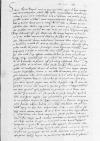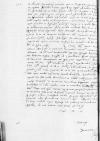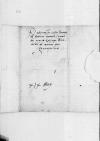Quantum doloris conceperam, cum intelligerem subitum illum casum et periculosam admodum procellam, quae non modo valetudinem Reverendissimae Dominationis Vestrae concutere, sed maius quoque periculum minari videbatur, tantum rursus voluptatis hausi, cum omnia viderem ex divina clementia in tranquilliorem statum et felicem exitum restituta esse. Debet itaque patria ipsa, debent, quotquot sunt, boni et patriae amantes non paruas Deo Optimo Maximo pro tanta beneficentia gratias. Neque dubitandum est, quin altissimus ille bonorum largitor voluerit eo modo veluti acerrimis adhibitis stimulis Reverendissimam Dominationem Vestram ad suscipiendam diligentiorem curam valetudinis incitare.
Dum nuper essem in Ermland (Warmia, Varmia), diocese and ecclesiastical principality in northeastern Poland, 1466-1772 within the Kingdom of Poland, Royal Prussia⌊WarmiaErmland (Warmia, Varmia), diocese and ecclesiastical principality in northeastern Poland, 1466-1772 within the Kingdom of Poland, Royal Prussia⌋, contuli cum venerabili domino doctore Nicolaus Copernicus (Mikołaj Kopernik) (*1473 – †1543), humanist, physician and astronomer, doctor of canon law; nephew of Łukasz Watzenrode, Bishop of Ermland; 1497-1543 Canon of Ermland (Warmia); 1511-1513, 1520, 1524-1525, 1529 Chancellor of the Ermland Chapter; 1523 General Administrator of the bishopric after the death of Fabian von Lusian (Luzjański) (KOPICZKO 2, p. 161; SBKW, p. 123-124)⌊Nicolao CoppernicoNicolaus Copernicus (Mikołaj Kopernik) (*1473 – †1543), humanist, physician and astronomer, doctor of canon law; nephew of Łukasz Watzenrode, Bishop of Ermland; 1497-1543 Canon of Ermland (Warmia); 1511-1513, 1520, 1524-1525, 1529 Chancellor of the Ermland Chapter; 1523 General Administrator of the bishopric after the death of Fabian von Lusian (Luzjański) (KOPICZKO 2, p. 161; SBKW, p. 123-124)⌋ de causa istius subiti morbi non pauca. Principio a me dissentire videbatur, tamen persuasus indiciis et rationibus idem mecum sensit, ut quicquid hoc erat mali, ex affecto cerebro veluti ex fonte manaverit. Summopere itaque curandum erit, ut cerebrum ita muniatur, ut non facile ab humoribus et fumis caput plerumque infestantibus laedatur. Idque potu diluto et tenuiore diaeta facile vitabitur.
Non potuit esse gratum, cum intelligerem Reverendissimam Dominacionem Vestram ad aulam serenissimi Ferdinand I of Habsburg (*1503 – †1564), from 1521 Archduke of Austria, from 1526 King of Bohemia and Hungary, Croatia and Slavonia as Ferdinand I, 1531-1558 King of the Romans, 1558-1564 Holy Roman Emperor; son of Philip I the Handsome and Joanna the Mad of Castile, a younger brother of Charles V of Habsburg⌊Romanorum regisFerdinand I of Habsburg (*1503 – †1564), from 1521 Archduke of Austria, from 1526 King of Bohemia and Hungary, Croatia and Slavonia as Ferdinand I, 1531-1558 King of the Romans, 1558-1564 Holy Roman Emperor; son of Philip I the Handsome and Joanna the Mad of Castile, a younger brother of Charles V of Habsburg⌋ profectionem instituisse, vereor enim, ne aula cum monstris suis, quae haud parvo numero alit, circa valetudinem Reverendissimae Dominationis Vestrae nobis difficultatis quippiam suscitet. Vix enim Heracles (Hercules), Greek mythic hero, famous for his extraordinary strength, son of Zeus and the mortal Alcmene⌊HerculesHeracles (Hercules), Greek mythic hero, famous for his extraordinary strength, son of Zeus and the mortal Alcmene⌋ ipse cum purpuratis istis harpiis tuto congredi posset tam avidis ad pugnam tamque ad certandum paratis. Certatur autem armis in speciem quidem innoxiis, verum, si res ipsa spectetur, aeque pestiferis et perniciosis ac si ferro res ageretur. Immania enim ista pocula, cum quibus contenditur, quid commodi invehant corporibus? Ipsi pronuntiat, qui vel mediocriter in ea palaestra versati sunt. Ipse, tametsi in ea harena numquam pro satis strenuo athleta habitus sim, attamen vehementer me pudet tantum operae in hoc ludo impendisse. Haec a me libere quidem attamen amico animo scripta Reverendissima Dominatio Vestra boni consulere dignabitur.
Ceterum summa iam adest occasio (ni forte fallar iudicio) serenissimo Ferdinand I of Habsburg (*1503 – †1564), from 1521 Archduke of Austria, from 1526 King of Bohemia and Hungary, Croatia and Slavonia as Ferdinand I, 1531-1558 King of the Romans, 1558-1564 Holy Roman Emperor; son of Philip I the Handsome and Joanna the Mad of Castile, a younger brother of Charles V of Habsburg⌊Romanorum regiFerdinand I of Habsburg (*1503 – †1564), from 1521 Archduke of Austria, from 1526 King of Bohemia and Hungary, Croatia and Slavonia as Ferdinand I, 1531-1558 King of the Romans, 1558-1564 Holy Roman Emperor; son of Philip I the Handsome and Joanna the Mad of Castile, a younger brother of Charles V of Habsburg⌋ apud concilium annatas (ut vocant) impetrandi ad aliquot annos in usum et defensionem incliti Hungary (Kingdom of Hungary)⌊regni UngariaeHungary (Kingdom of Hungary)⌋, praesens enim periculum, et quae oculis offertur – immanis illa et sanguinaria The Ottoman Turks (Turcae) ⌊TurcarumThe Ottoman Turks (Turcae) ⌋ truculentia – facile inducere deberet Christianos principes, ut non modo annatas eo patiantur conferri, sed ut superinscribed⌈utut superinscribed⌉ per regna et provincias contributiones constituantur
 UUB, H. 154, f. 64v
ad alendum firmissimum exercitum, qui in Hungary (Kingdom of Hungary)⌊UngariaHungary (Kingdom of Hungary)⌋ perpetuo ... illegible⌈...... illegible⌉ in castris, The Romans inhabitants of ancient Roman Republic/Empire⌊RomanorumThe Romans inhabitants of ancient Roman Republic/Empire⌋ more, excubias agat ad omnem occasionem paratus. Nec enim video, quomodo aliter ... illegible⌈...... illegible⌉ id regnum ab hoste tutum esse possit. Quo amisso, quid sperandum sit de retinenda Germany (Germania, Niemcy)⌊GermaniaGermany (Germania, Niemcy)⌋, aliorum esto iudicium. Hunc me invitum et praeter institutum rapuit dolor et commiseratio calamitatis reipublicae Christianae, quae socordia et dissensione principum nostrorum eo recidit, ut iam si velint, vix possint his malis mederi. Sero, sero nimium The Phrygians (Phruges, Phryges) ⌊PhrigumThe Phrygians (Phruges, Phryges) ⌋ more sapimus. Quo stomacho Demosthenes (*384 BC – †322 BC), Greek statesman and orator⌊DemosthenesDemosthenes (*384 BC – †322 BC), Greek statesman and orator⌋ et Cicero (Marcus Tullius Cicero) (*106 BC – †43 BC), Roman orator, writer and philosopher⌊CiceroCicero (Marcus Tullius Cicero) (*106 BC – †43 BC), Roman orator, writer and philosopher⌋, si in ea tempora incidissent, contra Turcicam tyrannidem fulminassent. Quibus Philippi et Antonii dominandi cupiditas huic minime conferenda intolerabilis erat. Sed de his satis.
UUB, H. 154, f. 64v
ad alendum firmissimum exercitum, qui in Hungary (Kingdom of Hungary)⌊UngariaHungary (Kingdom of Hungary)⌋ perpetuo ... illegible⌈...... illegible⌉ in castris, The Romans inhabitants of ancient Roman Republic/Empire⌊RomanorumThe Romans inhabitants of ancient Roman Republic/Empire⌋ more, excubias agat ad omnem occasionem paratus. Nec enim video, quomodo aliter ... illegible⌈...... illegible⌉ id regnum ab hoste tutum esse possit. Quo amisso, quid sperandum sit de retinenda Germany (Germania, Niemcy)⌊GermaniaGermany (Germania, Niemcy)⌋, aliorum esto iudicium. Hunc me invitum et praeter institutum rapuit dolor et commiseratio calamitatis reipublicae Christianae, quae socordia et dissensione principum nostrorum eo recidit, ut iam si velint, vix possint his malis mederi. Sero, sero nimium The Phrygians (Phruges, Phryges) ⌊PhrigumThe Phrygians (Phruges, Phryges) ⌋ more sapimus. Quo stomacho Demosthenes (*384 BC – †322 BC), Greek statesman and orator⌊DemosthenesDemosthenes (*384 BC – †322 BC), Greek statesman and orator⌋ et Cicero (Marcus Tullius Cicero) (*106 BC – †43 BC), Roman orator, writer and philosopher⌊CiceroCicero (Marcus Tullius Cicero) (*106 BC – †43 BC), Roman orator, writer and philosopher⌋, si in ea tempora incidissent, contra Turcicam tyrannidem fulminassent. Quibus Philippi et Antonii dominandi cupiditas huic minime conferenda intolerabilis erat. Sed de his satis.
Ceterum, Reverendissime Domine, tentavi nuper, an possem a quodam Romanen(sium)(?) canonicatum Warmiensem obtinere. Ad eam rem transigendam opus erit consensu serenissimi Ferdinand I of Habsburg (*1503 – †1564), from 1521 Archduke of Austria, from 1526 King of Bohemia and Hungary, Croatia and Slavonia as Ferdinand I, 1531-1558 King of the Romans, 1558-1564 Holy Roman Emperor; son of Philip I the Handsome and Joanna the Mad of Castile, a younger brother of Charles V of Habsburg⌊RomanorumFerdinand I of Habsburg (*1503 – †1564), from 1521 Archduke of Austria, from 1526 King of Bohemia and Hungary, Croatia and Slavonia as Ferdinand I, 1531-1558 King of the Romans, 1558-1564 Holy Roman Emperor; son of Philip I the Handsome and Joanna the Mad of Castile, a younger brother of Charles V of Habsburg⌋ et John Zápolya (János Szapolyai) (*1487 – †1540), 1526-1540 King of Hungary; son of István Szapolyai and Jadwiga of Cieszyn in 1540 married Isabella, dauther of of King Sigismund Jagiellon of Poland. He fought against Ferdinand of Habsburg for the right to the title of King of Hungary⌊Bohemiae regisJohn Zápolya (János Szapolyai) (*1487 – †1540), 1526-1540 King of Hungary; son of István Szapolyai and Jadwiga of Cieszyn in 1540 married Isabella, dauther of of King Sigismund Jagiellon of Poland. He fought against Ferdinand of Habsburg for the right to the title of King of Hungary⌋. Scripsi ad cancellarium reverendissimi Wratisl(auiensis) domini, Vincencius Hortensius (Vinzenz Gärtnert) (†1555), chancellor of Jacob Salza, bishop of Wrocław; Wrocław provost (Archiv 1858, p. 63, 66, 283)⌊Vincencium HortensiumVincencius Hortensius (Vinzenz Gärtnert) (†1555), chancellor of Jacob Salza, bishop of Wrocław; Wrocław provost (Archiv 1858, p. 63, 66, 283)⌋, ut opera sua expediretur. Si impetratus non sit, quod facile in cancellaria explorabitur, facillime nunc gratia Reverendissimae Dominationis Vestrae eundem obtinebimus. In quo gratiam suam mihi impartiri Reverendissima Dominatio Vestra non gravabitur. Necesse autem esset eundem impetrare simili clausula: “Consentimus utpote ius ms. vis(!)
⌈iusius ms. vis(!)
⌉ patronatus obtinentes in ecclesia collegiata Sanctae Crucis Wratisl(auiae), ut dominus doctor Nicolaus Copernicus (Mikołaj Kopernik) (*1473 – †1543), humanist, physician and astronomer, doctor of canon law; nephew of Łukasz Watzenrode, Bishop of Ermland; 1497-1543 Canon of Ermland (Warmia); 1511-1513, 1520, 1524-1525, 1529 Chancellor of the Ermland Chapter; 1523 General Administrator of the bishopric after the death of Fabian von Lusian (Luzjański) (KOPICZKO 2, p. 161; SBKW, p. 123-124)⌊Nicolaus CoppernicNicolaus Copernicus (Mikołaj Kopernik) (*1473 – †1543), humanist, physician and astronomer, doctor of canon law; nephew of Łukasz Watzenrode, Bishop of Ermland; 1497-1543 Canon of Ermland (Warmia); 1511-1513, 1520, 1524-1525, 1529 Chancellor of the Ermland Chapter; 1523 General Administrator of the bishopric after the death of Fabian von Lusian (Luzjański) (KOPICZKO 2, p. 161; SBKW, p. 123-124)⌋ possesor scolast<e>riae in eadem ecclesia, eam in manibus sanctissimi domini nostri Paul III (Alessandro Farnese) (*1468 – †1549), 1493 elevated to cardinal; 1524 Cardinal-Bishop of Ostia; 1534-1549 Pope⌊papaePaul III (Alessandro Farnese) (*1468 – †1549), 1493 elevated to cardinal; 1524 Cardinal-Bishop of Ostia; 1534-1549 Pope⌋ vel Jakob von Salza (*1481 – †1539), 1521-1539 Wrocław bishop⌊episcopi WratislauiensisJakob von Salza (*1481 – †1539), 1521-1539 Wrocław bishop⌋ resignare possit in favorem domini doctoris Ioannes Rupoldus (Rupold) (†1544), doctor of both canon and civil law; in 1527-1529 in Rome, where he lost all his property during the Sack of Rome; 1524-1544 Canon of Wrocław (Breslau); 1537-1544 Canon of Ermland (Warmia) (did not reside at Ermland) (SBKW, p. 210-211)⌊Ioannis RopoldiIoannes Rupoldus (Rupold) (†1544), doctor of both canon and civil law; in 1527-1529 in Rome, where he lost all his property during the Sack of Rome; 1524-1544 Canon of Wrocław (Breslau); 1537-1544 Canon of Ermland (Warmia) (did not reside at Ermland) (SBKW, p. 210-211)⌋, canonici Wratislauiensis etc., ita tamen, quod super eadem scolast<e>ria nulla pensio reservetur nec quovis alio gravamine oneretur etc.”
Reverendissimam Dominationem Vestram felicissime valere cupio optoque ut salvus et incolumis quamprimum ad nos redeat.
 UUB, H. 154, f. 64v
ad alendum firmissimum exercitum, qui in
UUB, H. 154, f. 64v
ad alendum firmissimum exercitum, qui in 

